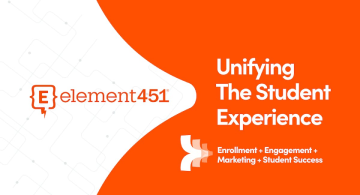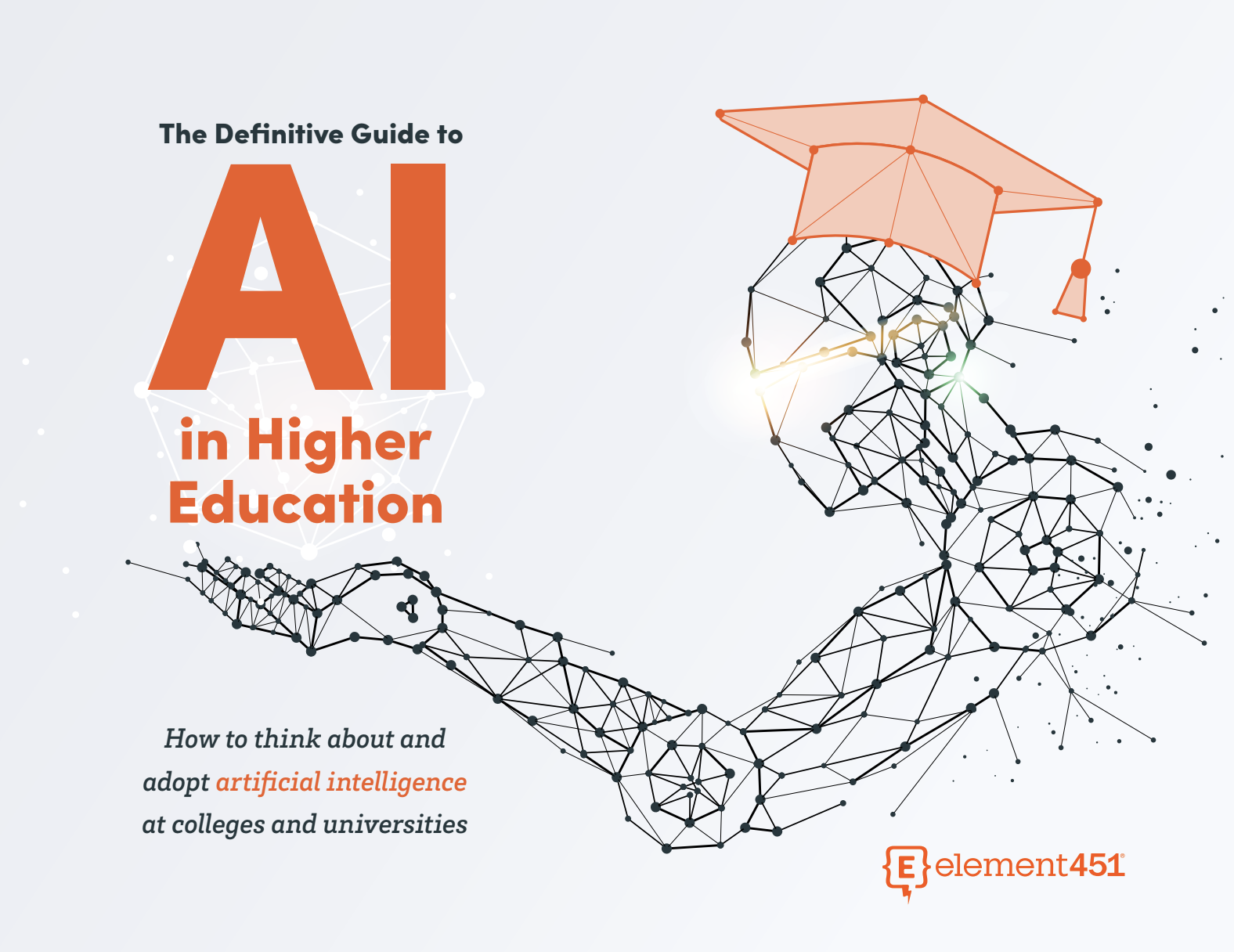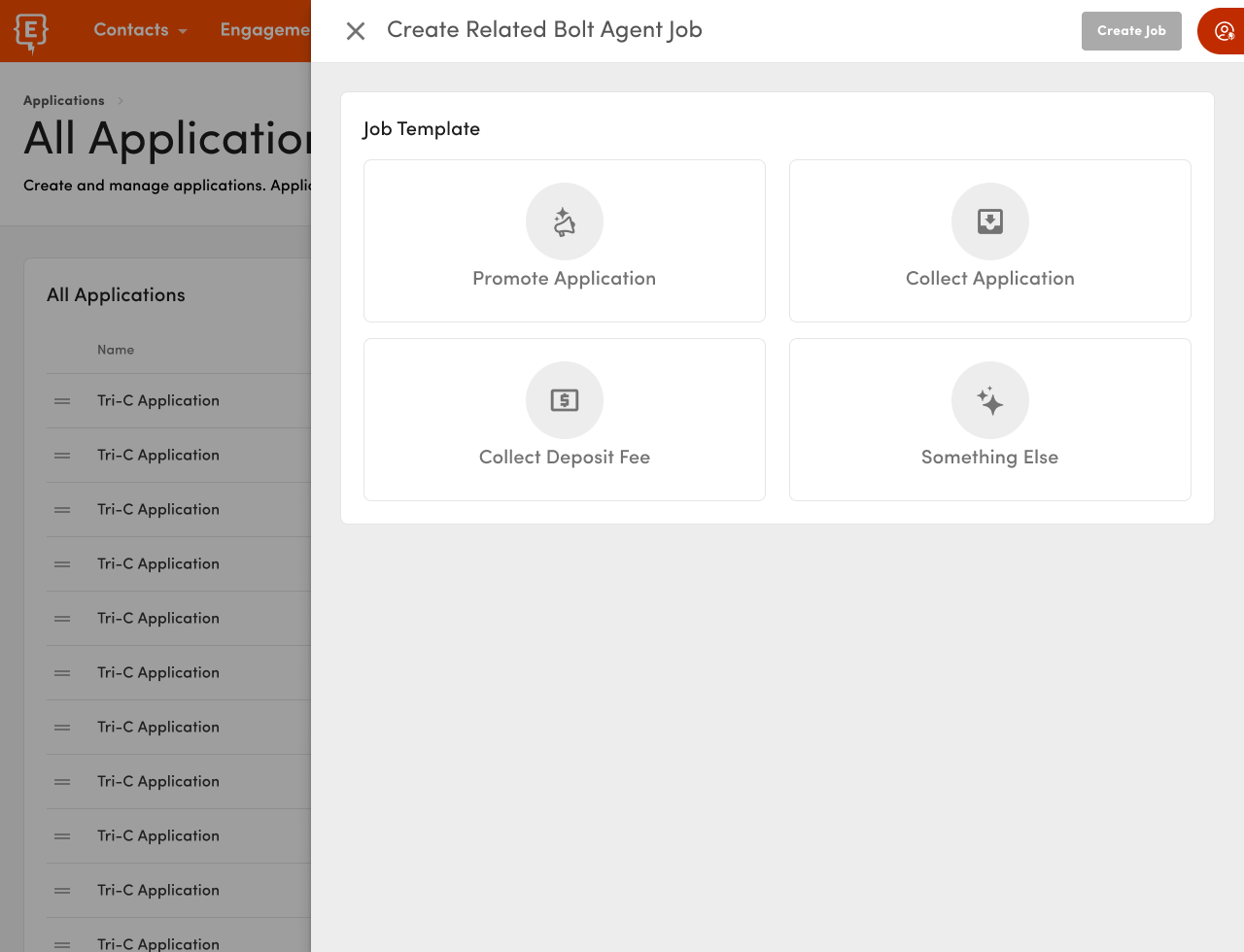Generative Search for Higher Ed: A New Way to Keep Students Engaged
by Brandon Hurter · Oct 15, 2024
With today’s students spending more time online and relying on digital tools for nearly every aspect of their academic journey, it’s critical for higher education institutions to provide intuitive, easy-to-use technology. One tool gaining attention is generative search—an advanced form of search technology that’s designed to help students find relevant information faster and more efficiently.
In this guide, we’ll break down the basics of generative search and explain why it’s becoming so important in higher education.
What Is Generative Search?
At its core, generative search is a type of search engine powered by artificial intelligence (AI). Unlike traditional search engines that rely on matching keywords (like Google), generative search is designed to understand the intent behind a question. It doesn’t just pull up a list of webpages or documents with the right keywords—it provides detailed, personalized answers.
Generative search isn’t just about getting results faster—it’s about getting better results.
Key Features of Generative Search
- Semantic Understanding: The system comprehends the intent behind a query, even when the question is complex or open-ended.
- Direct Answers: Rather than offering a list of links, generative search provides immediate, clear responses tailored to the student’s specific question.
- Conversational Flow: It doesn’t stop at one question. Generative search can suggest follow-up questions to guide students further, creating a conversational experience.
- Multi-Format Integration: Information from various formats (like web pages, documents, and videos) is processed within a single knowledge base, giving students access to a wide range of resources.
- Multilingual Support: It can respond in different languages, helping international students access critical information in their native tongue.
- Always Up-to-Date: The system syncs with your institution’s knowledge base to ensure students always receive accurate, current information.
How Does Generative Search Work?
Generative search is powered by a combination of advanced technologies, primarily driven by artificial intelligence (AI). These technologies allow the search engine to:
- Understand the Context of Questions: Instead of matching keywords, the search engine interprets what a student is really asking. For example, if a student asks, “What can I do with a biology degree?” generative search understands that they’re looking for career or educational paths, not just random information about biology.
- Generate New Information: Based on the question, generative search can create answers or responses that aren’t just pulled directly from a webpage. It generates new, synthesized responses based on what it knows.
- Adapt to the User’s Needs: Over time, generative search can learn from the types of questions students ask and the answers they find helpful, refining its responses to be even more personalized.
Why Does Generative Search Matter in Higher Education?
Students today are used to having personalized technology in their lives—think about how Netflix recommends shows or how Amazon suggests products. They expect the same kind of convenience and personalization in their educational tools. A poor search experience can drive prospective students away, leaving them frustrated by outdated or irrelevant results.
Let’s take a look at some common challenges with traditional search tools:
- 74% of higher ed professionals report that managing website search functionality is a top challenge.
- Outdated search results frustrate potential students and may cause them to abandon their search entirely.
- 71% of visitors find website search more important now than it was in 2016.
- Slow load times and poor navigation are major reasons students leave a website without engaging.
This matters because every failed search is a missed opportunity to connect with students and answer their questions. When students can’t find what they need quickly, they’re less likely to stay engaged with your institution.
Here are a few reasons why this technology is becoming important:
- Helps Students Navigate Complex Information: College websites are full of information—course catalogs, career options, program details, and more. It can be overwhelming for students to find exactly what they need. Generative search simplifies this process by guiding students to the right answers without them needing to sift through multiple pages of results.
- Personalized Recommendations: Whether it’s helping students choose the right courses, explore career options, or find the best resources for an assignment, generative search can offer tailored recommendations based on each student’s specific needs and questions.
- Engages Students More Deeply: When students find what they’re looking for quickly and easily, they’re more likely to stay engaged with the content. Instead of getting frustrated by not being able to find information, they get quick, helpful responses that keep them on track.
What Are the Benefits for Students?
For students, generative search offers several clear benefits:
- Time Savings: Students don’t need to spend hours searching through dense academic catalogs or multiple web pages. They can ask a question in natural language and get a clear, concise answer.
- Better Decision-Making: When students have accurate and tailored information, they can make more informed decisions about things like choosing a major, planning their coursework, or preparing for career paths.
- Increased Engagement: With easier access to information, students are more likely to stay engaged with their studies, use campus resources, and feel supported in their academic journey.
What Does This Mean for Higher Education Professionals?
For higher ed professionals, particularly those who aren’t IT experts, the takeaway is simple: generative search is about making the student experience smoother and more intuitive. You don’t need to know the technical details to see the benefits.
- Improved Student Support: With generative search, students can get the answers they need faster, reducing the workload on advisors and support staff. Instead of fielding repetitive questions, staff can focus on more meaningful interactions.
- Better Resource Utilization: When students find the right resources or information on their own, they’re more likely to use the tools and services your institution offers, from career services to academic advising.
- Enhanced Student Satisfaction: Personalized, responsive technology makes students feel more connected to their educational experience, which can lead to higher satisfaction rates and, ultimately, better retention.
Real-World Impact: Enhancing Student Journeys
Generative search significantly improves various stages of a student’s journey by providing immediate and tailored responses to their queries. Here’s how it can make a difference:
- Admissions: Students can instantly find information about program requirements, deadlines, and application processes.
- Financial Aid: Clear and accurate information on scholarships, grants, loans, and other financial aid options is readily available.
- Campus Life: Students can explore details about housing, clubs, activities, and other aspects of campus life.
- Program Discovery: Generative search allows students to dive into course offerings, majors, and career pathways based on their interests.
- International Support: International students can easily access information on visas, services, and other key resources in their preferred language.
By making it easier for students to find answers, generative search helps them make more informed decisions, keeps them engaged, and creates a smoother academic journey.
Conclusion
Generative search is an exciting new tool in higher education technology that can significantly improve how students interact with their academic resources. By offering personalized, accurate responses to their questions, it helps students make informed decisions, stay engaged, and feel supported throughout their academic journey.
Whether you’re a professor, advisor, or administrator, generative search is worth understanding because it’s a powerful way to improve the student experience—without requiring complex technical knowledge.

About Element451
Boost enrollment, improve engagement, and support students with an AI-driven CRM and agent platform built for higher ed. Element451 makes personalization scalable and success repeatable.
Categories
New Blog Posts

The Definitive Guide
AI in Higher Education
Bridge the gap between the latest tech advancements and your institution's success.
Useful Links

Talk With Us
Element451 is an AI-driven CRM and AI agent platform for higher education. Our friendly experts are here to help you explore how Element451 can improve outcomes for your school and students.
Get a Demo








